
Office address: 50 Hudson Yards New York, NY 10001
Website: www.blackrock.com
Year established: 1988
Company type: investment company
Employees: 19,800+
Expertise: asset management, risk management, ETFs (iShares), fixed income, alternative investments, wealth management, retirement solutions, private equity, infrastructure, real estate, sustainable investing, financial technology
Parent company: N/A
Key people: Larry Fink (CEO), Rob Kapito (president), Joud Abdel Majeid (global head), Stephen Cohen (CPO), Ed Fishwick (CRO), Rob Goldstein (COO), Martin Small (CFO), Chris Meade (CLO)
Financing status: N/A
BlackRock is a global investment company from New York, offering asset management, advisory, and risk management services. The firm manages $11.5 trillion in assets as of October 2024 and operates in over 38 countries. With over 19,800 employees, the company serves clients in more than 100 countries, helping them achieve long-term financial well-being through innovative financial solutions.
BlackRock was founded in 1988 by Laurence Fink and seven partners, driven by a desire to manage assets with a focus on risk management and client interests. The company quickly grew, and in 1999, it launched Aladdin, its proprietary technology that transformed the risk management industry. During the 2008 financial crisis, the company was tapped by the Federal Reserve to assess Bear Stearns' assets, playing a crucial advisory role.
In 2009, it acquired Barclays Global Investors, becoming the world's largest asset manager and integrating both active and index strategies. In 2017, the company deepened its focus on investment stewardship, emphasizing the long-term value of purpose in profitability. By 2024, it partnered with Vestmark to boost model portfolios, further expanding its offerings for registered investment advisors.
BlackRock offers a wide range of investment products and services designed to meet the diverse needs of its clients. Below are the some of their key offerings:
BlackRock’s global team provides insights on markets, economies, and long-term strategies, helping clients navigate the complexities of investing. Whether it is a professional or a new investor, their services aim to support financial success while also empowering employees and giving back to communities.
BlackRock’s culture is built on a commitment to its clients, employees, and core principles. The company focuses on employee growth, offering benefits that support physical, emotional, and financial well-being. The firm provides various resources and benefits to keep employees engaged and balanced, some of which include:
The firm’s commitment to diversity, equity, and inclusion (DEI) is central to its success, fostering an environment where employees feel a sense of belonging. The company’s global platform thrives by incorporating diverse perspectives to deliver the best outcomes for clients. By embracing unique skills and experiences, they empower employees to collaborate effectively and contribute to a shared mission:
The company’s social impact focuses on making financial prosperity accessible to more people and communities. The BlackRock Foundation supports low- to moderate-income households by helping them save, invest, and build wealth. Initiatives include:
BlackRock’s approach to corporate sustainability focuses on long-term value for shareholders, employees, communities, and clients. The company is committed to transparency, providing stakeholders with meaningful sustainability-related information.
Laurence Fink is company’s chairman, CEO, and founder, also serving on the boards of NYU and the World Economic Forum. Before founding BlackRock in 1988, he was a managing director at The First Boston Corporation. Fink earned a BA in political science and an MBA in real estate from UCLA.
The company’s key leadership team includes notable figures who lead the firm’s operations across global markets:
To prepare for potential market volatility, BlackRock advises financial professionals to reduce risk and shift toward safer investment options. With uncertainty ahead, particularly due to macroeconomic concerns and the upcoming elections, the firm highlights the importance of defensive strategies like the BlackRock Flexible Income ETF (BINC). This strategic adjustment also reflects their broader move toward active management, signaling its belief in a more hands-on approach during turbulent times.
The company recently reached an $11.5 trillion milestone in assets under management by the third quarter of 2024. This growth was driven by strong client inflows, notably into ETFs, fixed income, and private assets. BlackRock is accelerating its push into private assets, following acquisitions like Global Infrastructure Partners, and continues to lead in both public and private markets.

BondBloxx, founded by a group of former BlackRock executives, will offer fixed-income exchange-traded funds that target specific industry sectors.
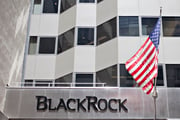
The retirement plan sponsors that have signed on for the new service, which mixes target-date funds and annuities, collectively represent more than $7.5 billion in plan assets.

Support from corporate executives and slick marketing is no match for rules and regulation when it comes to managing sustainable portfolios.
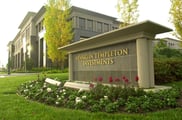
The deal makes Franklin the latest fund company to strike a deal for a direct indexing business. O'Shaughnessy's custom indexing unit, Canvas, has amassed $1.8 billion in assets since it started in 2019.

About 70% of people surveyed said they would choose a job with that feature over a similar one without it, according to a survey by TIAA.
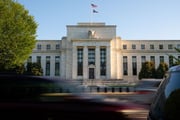
The central bank could start scaling back its asset purchases in November, the Fed chairman said, after policy makers revealed a growing inclination to raise interest rates next year.

Vanguard has just one employee to monitor climate issues for every 300 of its portfolio companies and it lacks a policy to divest some funds from coal producers, according to a report from Universal Owner.
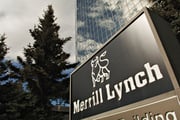
The change in the broker workstation is part of a broad effort, dubbed internally Project Thunder, to make work life a little bit easier and more comfortable for Merrill's advisers.

For several months, SEC examiners have been demanding that money managers explain the standards they use for classifying funds as environmental, social and governance-focused.

More than half the climate-themed funds reviewed by a nonprofit failed to live up to the climate goals set out in the Paris Agreement, while just over 70% of funds promising ESG goals fell short.
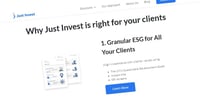
This month's #AdviserTech roundup includes Vanguard’s move into direct indexing, Vestwell’s $70 million capital round, and Simon Markets’ additional funding for its marketplace of risk-hedged investment solutions for advisers.

Executives at the 90-year-old asset manager have high hopes for building out Capital Group as a global ETF brand, with designs on a $500 billion business.
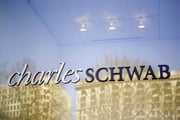
The brokerage joins other large financial firms in boosting salaries after more than a year of working through the pandemic. The pay raise, affecting most of Schwab’s 32,500 employees, will take effect in late September.

The discount brokerage posts short video clips on the social media app ranging from how-to guides for using the Fidelity Spire app to explainers of financial terminology.

The trend toward offering customizable indexes puts direct indexing on a track for explosive growth, according to new research from Cerulli Associates.
